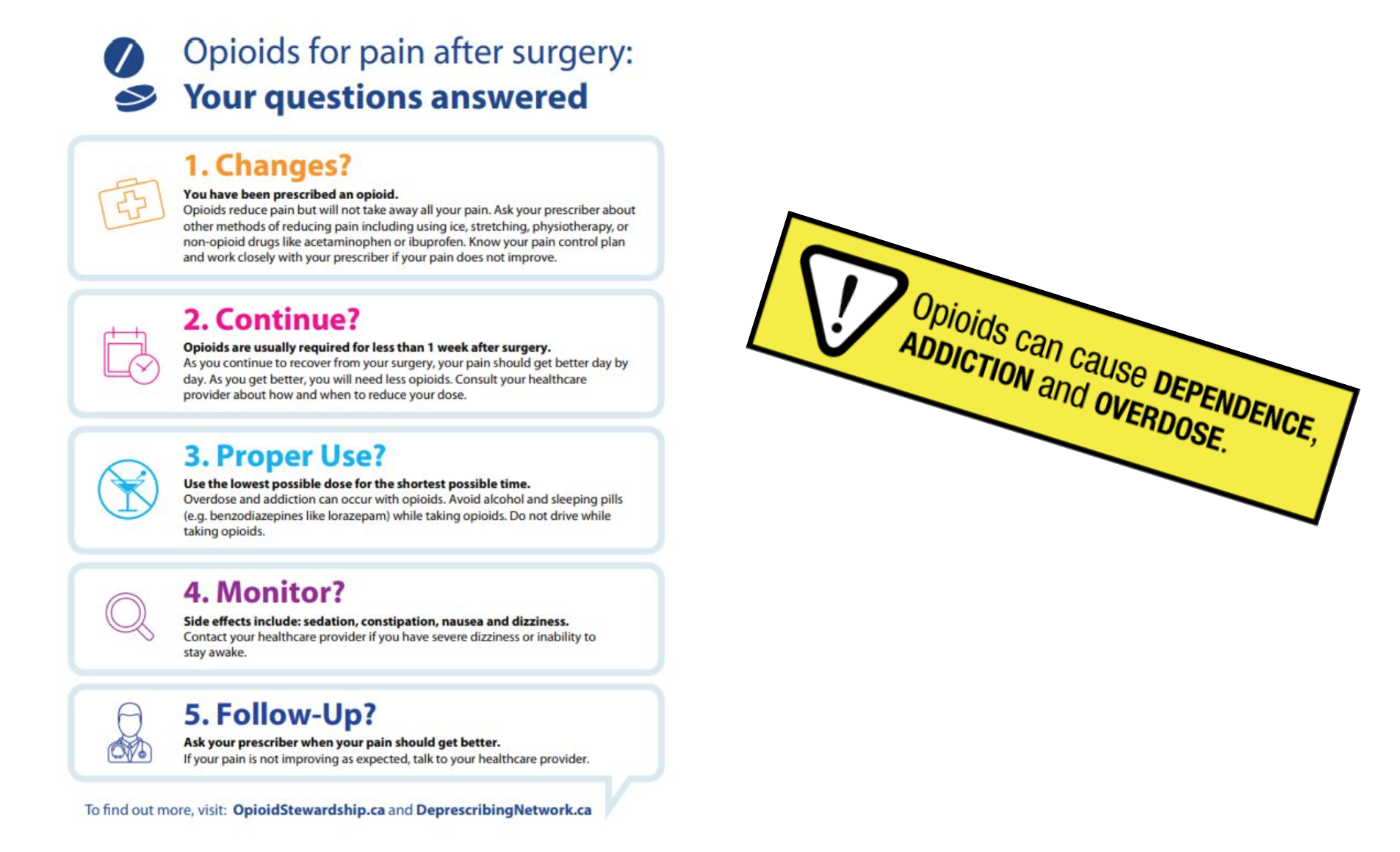You expect to experience pain after having surgery. You also expect to get medicine to help the pain, but, should you expect that you might become addicted?
Let’s think about a relatively minor surgery that teenagers have – getting their wisdom teeth taken out. Usually, the mouth is quite sore and swollen after the tooth is taken out. It is common for the dental surgeon to give a prescription for an opioid for the pain (e.g. acetaminophen with codeine or oxycodone).
ARE YOU AWARE OF THE RISKS WITH OPIOIDS AND YOUTH?
A recent article in a medical journal looked at trends between youth given opioid prescriptions for pain after wisdom teeth surgery. The study said, “compared with patients in the control group (no opioids), the group that received dental opioids had much higher rates of continuing opioid use and abuse”. This study is setting off alarm bells because youth aren’t the only ones affected. Everyone is at risk of becoming addicted to opioids.
Health Canada has noticed and is now taking steps to reduce the harm associated with opioids. Many initiatives are taking place across the country and public awareness is really important. Every opioid prescription is now given out with a sticker and a patient handout. (yellow sticker shown above).
Look at this pamphlet (shown above) by the Institute for Safe Medication Practices Canada. It’s called: Five questions to ask: Opioids for Pain After Surgery and it helps people set realistic expectations and know what to discuss with their doctor. For example, have a plan in place to get you off opioids. After surgery, your pain should be less every day as your body heals, so instead of going back to the doctor and asking for more pain pills – ask “why am I still in pain?” and “what else needs to be done?”
THE BOTTOM LINE – Opioids have a place to help cut down your pain after surgery. They can work very well and help keep you comfortable. But don’t start using opioids without a plan to get off opioids. Always talk to your doctor or pharmacist about options.

